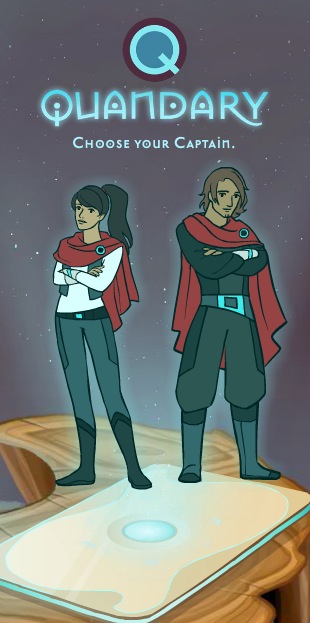Quandary: Preparing to Play & Guiding Questions (with ELL Support)
Before playing this ethics and English game, ask if students are familiar with the word “Quandary”? You may want to start the session by asking: “Do you know what the game’s title means? What is a quandary?”
In Quandary, players must make difficult decisions in which there are no clear right or wrong answers but important consequences – to themselves, to others in the colony, and to the planet Braxos. In their interactions with other settlers in the futuristic colony, players must consider facts, opinions and solutions, just like in real life.
You shouldn’t need to explain the details of the game – the game does that itself. But it’s a great idea to summarize the overall narrative: “This game challenges you to make tough decisions about how to build a colony on a new planet.”
Focus on the fact that it is helpful for students to realize that sometimes there are no wrong or right answers, but to focus instead on the possible results of their decisions down the line.
Here are some guiding questions you can use to support English Language Learners (ELLs) students:
Opening Comic
- What’s the problem between the farmer and the colonist?
- What is the captain’s job?
- What is a better way of doing things?
- How does the captain suggest to solve the problem?
- What are the captain’s responsibilities?
- What does the captain do if it’s a difficult problem?
- Why might the captain have problems or difficulties?
- How can he/she best avoid these problems?
The Lost Sheep Introductory Comic
- What is a yashor?
- What is the problem?
- What evidence do they have that the yashors did it?
- Why are the sheep important?
- What are the two arguments presented by the colonists?
At The End of the Game
- Explain the different steps in this process about solving a problem and making a decision.
- Which colonist’s viewpoint did you most closely agree with?
- Which solution would you have chosen? Why do you think it was the best?
- Describe a situation in your life when this decision-making process might be helpful.
- Essential Question: Is the process helpful? Why/why not?






